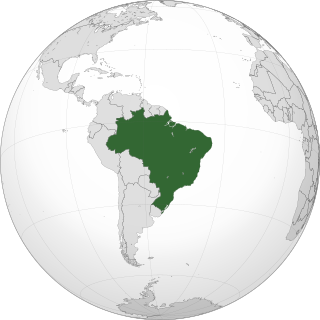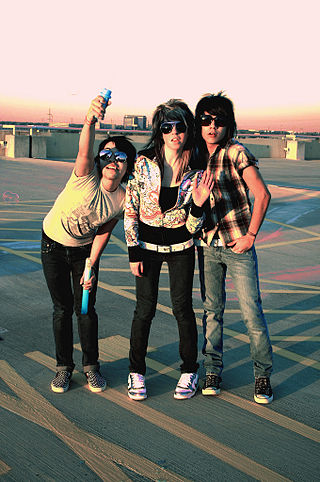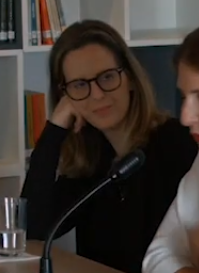
Internet slang is a non-standard or unofficial form of language used by people on the Internet to communicate to one another. An example of Internet slang is "lol" meaning "laugh out loud." Since Internet slang is constantly changing, it is difficult to provide a standardized definition. However, it can be understood to be any type of slang that Internet users have popularized, and in many cases, have coined. Such terms often originate with the purpose of saving keystrokes or to compensate for small character limits. Many people use the same abbreviations in texting, instant messaging, and social networking websites. Acronyms, keyboard symbols, and abbreviations are common types of Internet slang. New dialects of slang, such as leet or Lolspeak, develop as ingroup Internet memes rather than time savers. Many people also use Internet slang in face-to-face, real life communication.
Carioca is a demonym used to refer to residents of the City of Rio de Janeiro, in Brazil and their culture.

Brazilian Portuguese is the set of varieties of the Portuguese language native to Brazil and the most influential form of Portuguese worldwide. It is spoken by almost all of the 203 million inhabitants of Brazil and spoken widely across the Brazilian diaspora, today consisting of about two million Brazilians who have emigrated to other countries. With a population of over 203 million, Brazil is by far the world's largest Portuguese-speaking nation and the only one in the Americas.
The Portuguese personal pronouns and possessives display a higher degree of inflection than other parts of speech. Personal pronouns have distinct forms according to whether they stand for a subject (nominative), a direct object (accusative), an indirect object (dative), or a reflexive object. Several pronouns further have special forms used after prepositions.
A cant is the jargon or language of a group, often employed to exclude or mislead people outside the group. It may also be called a cryptolect, argot, pseudo-language, anti-language or secret language. Each term differs slightly in meaning; their uses are inconsistent. Richard Rorty defines cant by saying that "'Cant', in the sense in which Samuel Johnson exclaims, 'Clear your mind of cant,' means, in other words, something like that which 'people usually say without thinking, the standard thing to say, what one normally says'." In Heideggerian terms it is what "das Man" says.

Kid Abelha was a pop rock band from Rio de Janeiro, Brazil, formed by Paula Toller, George Israel and Bruno Fortunato. The group has recorded 13 studio albums, 3 live albums and 2 live DVDs. They have created many songs which have entered into Brazilian pop-rock history. The group sold more than 8 million albums worldwide.

Maria Odete Brito de Miranda de Souza, known professionally as Gretchen, is a Brazilian singer and media personality. Gretchen is the older sister of Brazilian country singer Sula Miranda, and mother of Brazilian politician Thammy Miranda. She is known for reinventing her music and image, and for keeping her autonomy within the music industry. She has a vast musical repertory, and has been the source of some controversy throughout her career. Referred to as the "Rainha do Bumbum", Gretchen has sold 15 million records over nearly four decades.
Portuguese and Spanish, although closely related Romance languages, differ in many aspects of their phonology, grammar, and lexicon. Both belong to a subset of the Romance languages known as West Iberian Romance, which also includes several other languages or dialects with fewer speakers, all of which are mutually intelligible to some degree. A 1949 study by Italian-American linguist Mario Pei, analyzing the degree of difference from a language's parent by comparing phonology, inflection, syntax, vocabulary, and intonation, indicated the following percentages : In the case of Spanish it was 20%, the third closest Romance language to Latin, only behind Sardinian and Italian. Portuguese was 31%, making it the second furthest language from Latin after French.

Portuguese orthography is based on the Latin alphabet and makes use of the acute accent, the circumflex accent, the grave accent, the tilde, and the cedilla to denote stress, vowel height, nasalization, and other sound changes. The diaeresis was abolished by the last Orthography Agreement. Accented letters and digraphs are not counted as separate characters for collation purposes.

Encyclopedia Dramatica is an online community website, centered around a wiki, that acts as a "troll archive" and its community members frequently participate in harassment campaigns. The site hosts racist material and shock content; as a result it was filtered from Google Search in 2010. The website's articles lampoon topics and current events related or relevant to contemporary internet culture in an encyclopedic fashion. It also serves as a repository of information and a means of discussion for the hacker group known as Anonymous. Encyclopedia Dramatica celebrates its subversive "NSFW" "troll site culture" and documents internet memes, events such as mass organized pranks, trolling events called "raids", large-scale failures of internet security, and criticism by those within its subculture of other internet communities which are accused of self-censorship in order to garner positive coverage from traditional and established media outlets. The site hosts numerous pornographic images, along with content that is misogynistic, racist, antisemitic, Islamophobic and homophobic.

Ana Maria Siqueira Iorio, known by the stage name Diana, was a Brazilian singer who gained fame in the 1970s. She was born Ana Maria Siqueira Iorio, in Botafogo neighbourhood, in Rio de Janeiro city, at 2 June, and raised in the Leblon neighbourhood. Her fans gave her the nickname "The Love Singer of Brazil". Her song styles are Jovem Guarda and Brazilian Pop.

The scene subculture is a youth subculture that emerged during the early 2000s in the United States from the pre-existing emo subculture. The subculture became popular with adolescents from the mid 2000s to the early 2010s. Members of the scene subculture are referred to as scene kids, trendies, or scenesters. Scene fashion consists of skinny jeans, bright-colored clothing, a signature hairstyle consisting of straight, flat hair with long fringes covering the forehead, and bright-colored hair dye. Music genres associated with the scene subculture include metalcore, crunkcore, deathcore, electronic music, and pop punk.
Jejemon was a popular culture phenomenon in the Philippines. The Philippine Daily Inquirer describes Jejemons as a "new breed of hipster who have developed not only their own language and written text but also their own subculture and fashion."

Luan Rafael Domingos Santana is a Brazilian singer-songwriter. His first live album was a bestseller throughout 2010, selling over 100,000 copies.
Caipira is a dialect of the Portuguese language spoken in localities of Caipira influence, mainly in the interior of the state of São Paulo, in the eastern south of Mato Grosso do Sul, in the Triângulo and southern Minas Gerais, in the south of Goiás, in the far north, center and west of Paraná, as well as in other regions of the interior of the state. Its delimitation and characterization dates back to 1920, with Amadeu Amaral's work, O Dialecto Caipira.

Aracy Balabanian was a Brazilian actress.

Tatiane "Tati" Bernardi Teixeira Pinto is a Brazilian short story writer, novelist, cronista, screenwriter and journalist. Her works are particularly directed towards young women.

Kéfera Buchmann de Mattos Johnson Pereira is a Brazilian actress, singer, TV hostess, influencer, writer and YouTuber. She has been named by Forbes as one of the most promising young women in Brazil.

Dolly is a Brazilian soft drink company based in Diadema, São Paulo which has operated in the Southeast Region of Brazil since its founding in 1987. Its main product is Dolly Guaraná.

Kelly Cristina dos Santos, better known as Cris Vianna is a Brazilian actress, model, and former singer.













